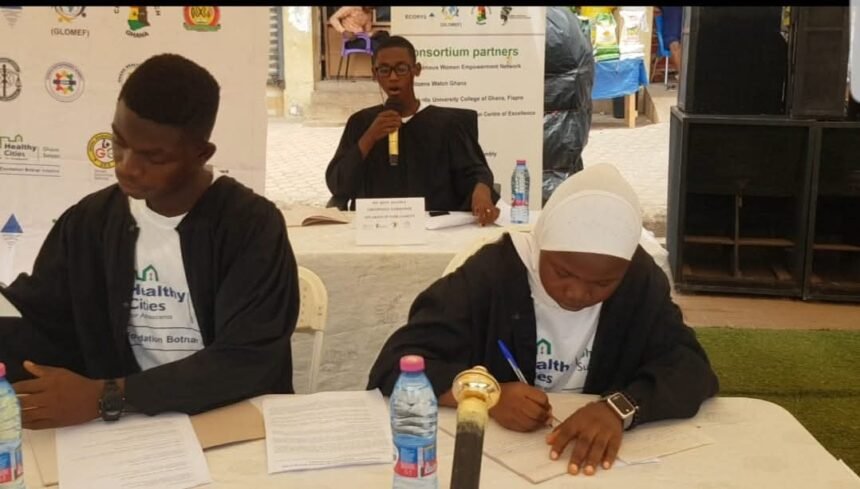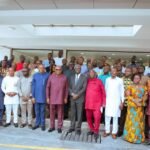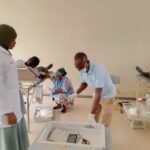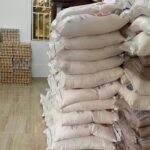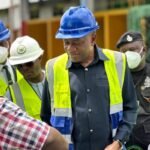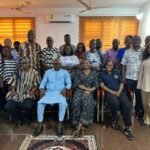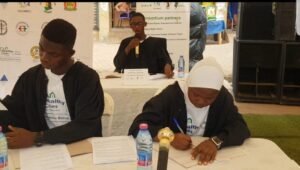 The Sunyani Municipal ‘Adolescent Parliament’ has bemoaned the state of the Sunyani ‘Zongo dumpsite’ describing the site popularly known as the ‘Zongo Borla’, as a hub and breeding grounds for criminal activities in the Bono Regional capital.
The Sunyani Municipal ‘Adolescent Parliament’ has bemoaned the state of the Sunyani ‘Zongo dumpsite’ describing the site popularly known as the ‘Zongo Borla’, as a hub and breeding grounds for criminal activities in the Bono Regional capital.
“The site is notorious for open defecation, drug use, and criminal activities, particularly theft”, Master Daniel Sarkodie-Frimpong, the ‘Speaker’ of the Parliament sated, worrying that “over 80 percent of reported theft cases in Sunyani occur in or around area, with many adolescents both involved in and victimized by these crimes”.
He, therefore, called on President John Dramani Mahama to intervene and do something immediately, worrying that “efforts by the previous government through the World Bank-funded Secondary City Project aimed at evacuating and rehabilitating the site have seen limited success”
Master Sarkodie-Frimpong made the call when he addressed the Second Adolescent Parliamentary Sitting and Bi-annual policy and performance hearing of the Parliament in Sunyani on the topic “Strengthening and enforcing sanitation laws: Addressing the Sunyani Zongo Dumpsite as a key step toward a clean and safe city for adolescents”.
The Sunyani-based Global Media Foundation (GloMeF), an anti-corruption, human rights, and media advocacy Non-Governmental Organisation (NGO) inaugurated the ‘parliament’ under the Resilient City for Adolescents (RC4) project it is implementing in the municipality.
GloMeF specializes in the usage of social and behaviour change communication, right and evidence-based researcher approaches to facilitate inclusive development programmes targeting young people, women, children, and other vulnerable groups.
Master Sarkodie-Frimpong indicated that the “Zongo Borla has long been a hub of environmental degradation and dangerous activities that pose severe risks to adolescents and the broader community”.
The structures within the site have become hotspots for drug sales and consumption, creating a cycle of risky behavior and insecurity.
He said, “although some clearance work has been done, it has still left the site in a hazardous state, exposing residents to increased health risks, including cholera outbreaks and waterborne diseases,” saying “open defecation has become normalized, further exacerbating sanitation challenges”.
GLOMEF, through the RC4A project, has therefore proposed converting the site into a safe and inclusive recreational center for adolescents.
However, the transformation has been hindered by the contractor’s inability to complete and hand over the site, leaving the community in a state of neglect and danger.
Master Sarkodie-Frimpong expressed concern that the increased exposure to pathogens due to unregulated dumping, open defecation, and partially cleared debris had a higher risk of cholera outbreak dysentery, and skin infections.
“The prevalence of theft and illegal activities, such as drug dealing and smoking, places adolescents in danger of being recruited into criminal behavior or falling victim to violence,” he added saying “adolescents living near or interacting with the dumpsite face stigma, limiting their integration into positive community activities and opportunities for personal development”.
If left unaddressed, he added that the “ongoing issues at the dumpsite could worsen, leading to a public health crisis and further entrenching criminal activities,” and therefore called on the President to intervene so that the city authorities would expedite action for the evacuation and levelling of the site.
Mr Edward Ayabilah, the Programme Manager, GloMeF said “by addressing the Sunyani Zongo dumpsite and harmful drug consumption as critical urban issues, the adolescent parliament will highlight the need for integrated and youth-led approaches to sustainable urban development”.
“With their active participation, adolescents can ensure that Sunyani becomes a cleaner, safer, and more inclusive city that prioritizes their needs while contributing to the achievement of long-term sustainability goals”.
In a highlight, Mr Ayabilah said the implementation of the three-year project commenced about a year and half ago, and was making enormous impact on the adolescents, and commended the Swiss Botnar Fondation for funding it.
GNA

